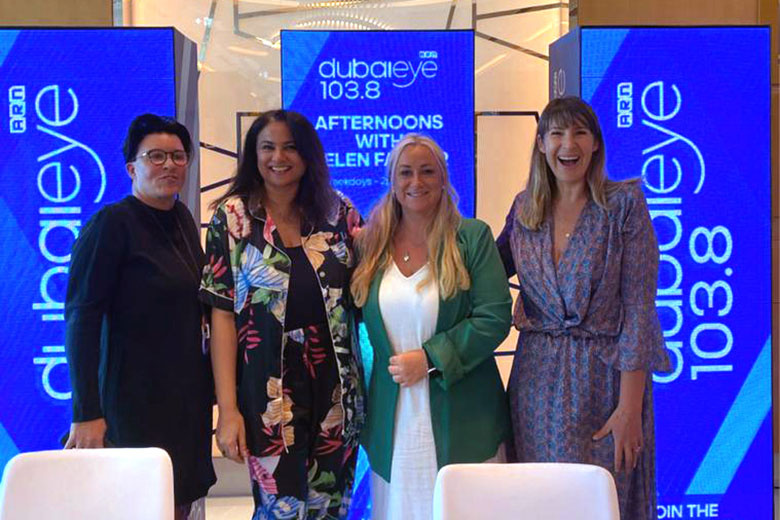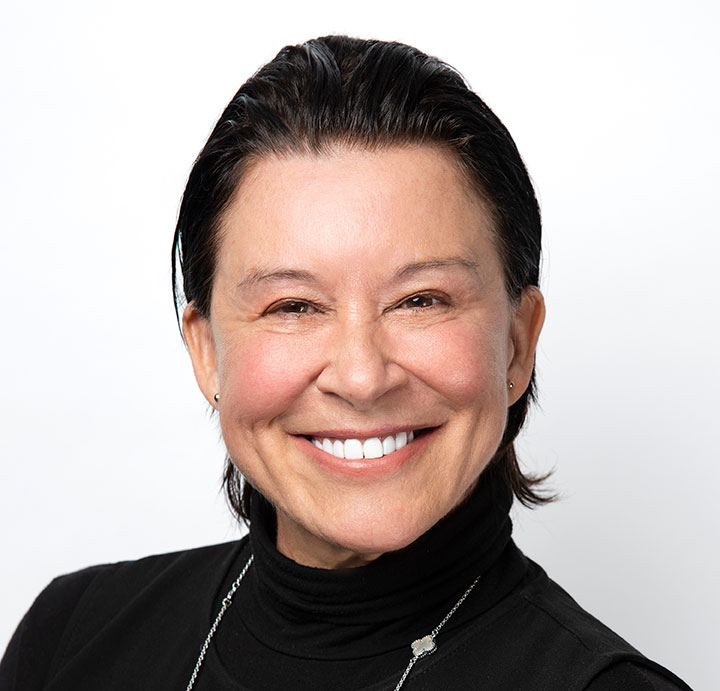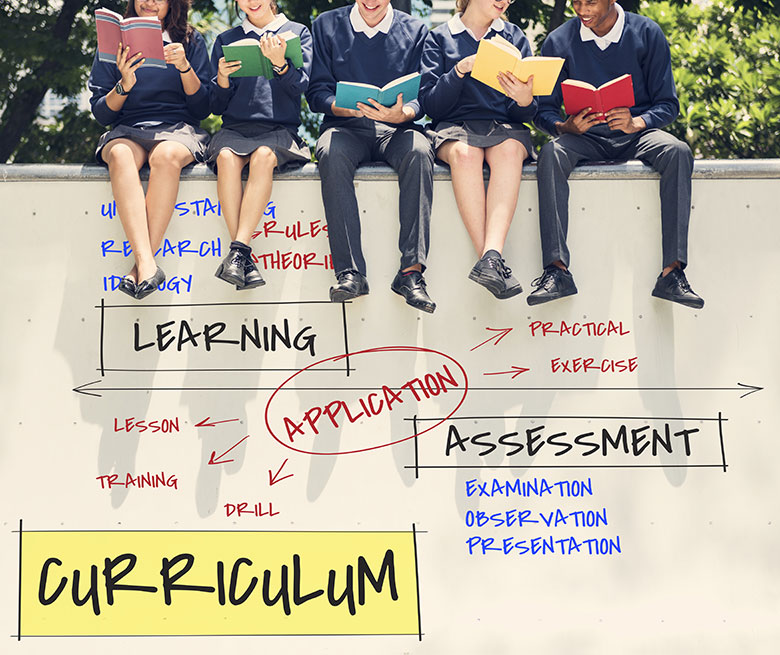
Laura Wojciechowski, Education UAE and Helen Farmer, Dubai Eye
One of the primary responsibilities of a parent is to ensure that their kids receive a quality education; therefore, it is important to take the time to research and compare various approaches to teaching. Each country, of course, has created its own system for educating its children, and the extensive histories of the various curricula do give parents looking for a top-notch education for their children a framework.
There is certainly no one-size-fits-all approach to the education of children, and the child who thrives under one educational system may not do as well under another. Consequently, the key to understanding the needs of an individual child is to find a curriculum that best meets their specific needs, interests, and talents.
Naturally, there is very little difference between what happens in a UK curriculum classroom and what happens in a US curriculum, IB curriculum, or Indian curriculum school when children begin school at the age of three or four.
Regardless of the curriculum, a substantial chunk of early childhood education focuses on play-based learning and the growth of important social skills. However, as students advance through school, the curriculum does become a more pressing topic.

On a recent appearance on the Helen Farmer show on Dubai Eye 103.8, Education UAE Partner and Media Director, Laura Wojciechowski, and Founding Principal at Citizens School, Tracy Moxley, began to fill in a few of the gaps, with Tracy explaining: “I understand why parents become confused because there is so much choice, so many different curricula. Every single parent, including myself, wants their child, because they spend so much time at school, to be happy. If you have happy children and they enjoy going to school and they enjoy being in that environment, they’ll learn, and I think that’s the key.”
“I think the question for most parents is,” Laura says, “what are the options out there? We’re living somewhere where there’s something for everyone – Australian, French, Italian, German, Swiss, Japanese, it’s endless.

That is why at Education UAE we strive to provide an unbiased platform for parents; there’s so much choice and it’s finding how your child is going to be happy. So we provide a platform where parents can find out about the schools and opportunities, allowing them to make informed decisions.”
Those decisions are frequently straightforward for families from the UK, the US, and India. Their curricula are readily available in the UAE, thus students are frequently driven to choose the ‘one from back home’. For families that must make a decision, though, it makes sense to evaluate all available options and to decide which one seems to be the best fit based on current needs, future plans, location, and costs.


If you have happy children and they enjoy going to school and they enjoy being in that environment, they’ll learn, and I think that’s the key.”
– Tracy Moxley
But what happens if there is a need to change to a new curriculum mid-way through a student’s education after moving to the UAE; is this a major cause for concern? Simon O’Connor, Deira International School Director, says this is not necessarily the case, but there are caveats: “Changing curriculum isn’t of itself a problem. Although they are different, most curricula deliver similar core components, but there are differences. However, this needn’t be seen as a problem. It is certainly the case that some options suit different students better. The issue arises in the timing of a move. Most schools will divide the curriculum into different phases, or key stages, and these can be two or three years in length. Especially in the older years, it is far better for a student to go through a complete phase or key stage than move mid-way.
“So, it is certainly important to consider the timing of a move once a student is 13 years old or more. At this point, students will start to study examined courses, such as GCSE, IB or A-level, and if they are to achieve all that they can in these courses then being in one school for the whole course is by far the better option.”
Consequently, it seems to be about making the right fit; where will the child be happiest and most inspired? Tracy agrees, explaining: “At Citizens, we’re looking for the child to be an active participant in the learning process.
It’s All About Passion
“There’s been a real focus on the early years in the UAE of late and early childhood is really significant and important, and I think we now know that,” Tracy Moxley said on Dubai Eye. “Play-based learning with some formal academics really mark that age and stage for every curriculum, so in terms of bringing your child into US, UK, IB or Indian curricula you will find play-based, flow type learning, where there’s lots of sensory stimulation and play activities, with some formal academics and child development areas. So there are actual outcomes for age groups within different curricula that are pretty much the same, so parents don’t need to worry too much about that.”
Consequently, it seems to be about making the right fit; where will the child be happiest and most inspired. Tracy agrees, explaining: “At Citizens, we’re looking for the child to be an active participant in the learning process.
Different schools offer different opportunities. Some schools are very traditional in their academic approach – they can be the British, IB American curriculum or Indian curriculum – they are all academic curricula. But it’s how the school does that, what kind of environment is the child going into, are there opportunities for children to find their passion and their purpose so that they can suddenly say to you, “I know where I want to be”. I think it’s the responsibility of every school, no matter what the curriculum, to help every child to find their passion.”
Looking to the Future
One of the first questions a parent must ask is, where do they see themselves in the future? Will they be staying in the staying in the UAE, returning to the UK or will they be heading to pastures new?
The UK curriculum is probably the more obvious choice if you intend to relocate to the UK, Australia, New Zealand, South Africa, or Canada. Additionally, it is the curriculum that is most prevalent internationally.
The UK curriculum is favoured as a backup choice by a large majority of Indian families due to the historical ties between the subcontinent and the UK, as well as the limited availability of Indian curriculum schools in the UAE. However, both programmes are viable alternatives given the number of students from the subcontinent who attend British universities.
The US curriculum makes sense if you believe that the US is a future destination. But keep in mind to only consider schools with accreditation, as the US curriculum differs greatly from State to State, something that a lot of non-Americans don’t realise.
Americans don’t realise
A common misconception seems to be that the US curriculum is less rigorous intellectually than other well-known curricula. This is incorrect and there is undoubtedly intellectual rigour for students with university ambitions under the US system, which mandates that students take standardised tests for college admittance (such as the SAT and AP).
Nevertheless, to ensure that students graduate with a highly regarded, globally recognised university entry certificate, a number of US curriculum institutions in the UAE have elected to offer the IB Diploma programme in addition to a High School Diploma.
Evaluate all available options and decide which one seems to be the best fit based on current needs, future plans, location, and costs
Think about the International Baccalaureate programmes if you’re considering Europe or Latin America. The IB programmes are increasingly popular and well-regarded by major universities around the world. They are taught in English, French, and Spanish using a unified teaching style throughout the world.
Furthermore, there are schools in the UAE that teach their own hybrid curriculum (particularly the SABIS schools), and due to their close ties to the Levant, these are especially appealing to expat Arab families. Additionally, there are more and more schools that provide international curricula with a strong Arabic and Islamic emphasis, which appeals to many Arab expat families.
Another consideration that can be overlooked by families is the significant disparity between academic calendars in the northern and southern hemispheres. There is a solution, though.
Either repeating a half-year of study or jumping ahead – which, of course, will come with its own unique set of challenges. But it’s absolutely possible and something that happens with relative frequency.

Another consideration that can be overlooked by families is the significant disparity between academic calendars in the northern and southern hemispheres
Staying Ahead of the Game
Whichever option parents choose, they will always have to be thinking one step ahead when it comes to their child’s education and will need support, help and advice when making those ‘make-or-break’ decisions. We asked Simon O’Connor how they approach this at Deira International School.
“We are fully aware of the magnitude of the decision in choosing a school and therefore will offer as much guidance as needed to help parents and students,” he begins. “We have an admissions team who guide parents through the application process and can provide discussions with the academic team to explain what we do here, the curriculum we offer, and what the student will be studying. Parents can also talk to our careers guidance team if they are joining at an age where university choices are pertinent.
“Beyond this, parents and students will be given a tour of the school so they can see the school in action. Once a student joins, we provide transition support for the first few days to ensure the student and parents can quickly settle.”
And always keep in mind that although it’s a big decision, you can always change your mind later on if you realise it wasn’t the best choice after all.
Given the overwhelming amount of interest and calls into the show with parents seeking guidance, we’re happy to answer any further questions you may have.
If we can help or need to pass you on to a school that may suit your child’s needs please email us at ed**********@*pg.media.
We may create a future article with the most common questions and best answers from the experts in a future article.
















